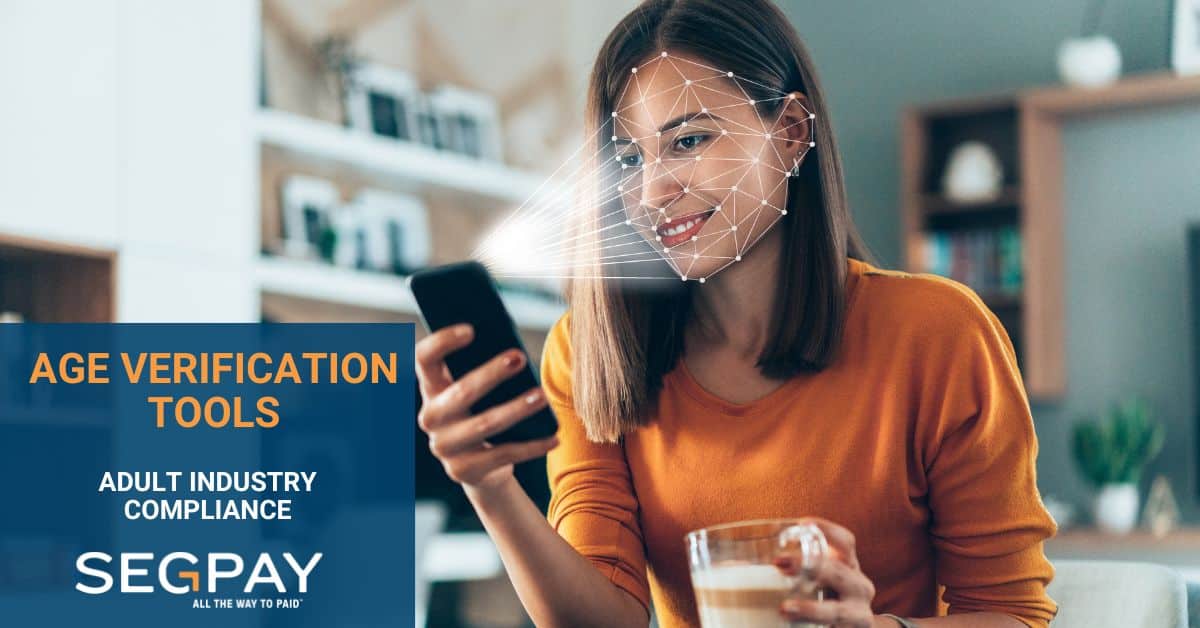Age verification tools are crucial in the adult industry to ensure that only users of legal age (typically 18+) access adult content. Various tools and methods are used across platforms to verify age, ranging from simple age-checking prompts to sophisticated identity verification systems. Here are some of the most popular age verification tools and methods:
Document-Based Verification
Yoti: Yoti is a widely used digital identity platform that allows users to upload government-issued identification (like a passport or driver’s license) to verify their age. It is GDPR-compliant and offers high security.
Veriff: Veriff provides identity verification solutions, requiring users to upload documents and perform face matching to confirm their age and identity.
Jumio: A global provider of online identity verification, Jumio uses AI and biometrics to verify users by checking documents and live selfies.
ID.me: A platform for identity verification, ID.me checks government-issued IDs and cross-references them with official databases.
Verify.Me is a privacy-centric, decentralized identity verification tool that partners with trusted identity providers to allow users to verify their personal details in a secure, consent-based manner.
Facial Recognition and Biometric Tools
Biometric age verification uses biological traits, such as facial recognition, fingerprints, or iris scans, to estimate and confirm a person’s age. By analyzing these unique physical characteristics, biometric systems ensure that users meet age requirements for accessing services, enhancing security and preventing fraud without needing traditional ID documents.
- iProov: iProov uses facial recognition and liveness detection technology to verify a user’s identity and age in real time.
- AgeChecked: This platform utilizes a combination of methods, including biometric facial scanning and document verification, to confirm the user’s age.
- Onfido: Onfido combines document checks with biometrics (facial recognition) to verify the age of users.
Credit Card and Payment Verification
- Credit Card Verification: Some adult websites and services use credit card verification as a proxy for age verification. Since credit cards are typically only issued to individuals over the age of 18, validating a card can be a quick way to verify age. Although most laws do not accept credit card verification as a proper age verification tool.
- AVSecure: A blockchain-based age verification tool, AVSecure links a user’s verified identity to payment credentials, ensuring they meet age requirements.
Smartphone and SMS-Based Verification
- Mobile Verification: This method uses mobile carriers to verify users’ age. In regions like the UK, some telecom companies provide age-verification services to confirm the user’s legal age through their account details.
- One-Time Password (OTP) Verification: Some platforms use an SMS-based OTP sent to the user’s mobile phone. The phone number can then be verified against the user’s carrier for age confirmation.
Data and Database Cross-Referencing
- Experian Age Verification: Experian, a credit bureau, offers age verification services that cross-reference personal information against their databases to confirm the user’s age.
- LexisNexis: LexisNexis uses public records and databases to verify personal information and validate a user’s age.
- GBG Age Verification: GBG provides solutions that verify users by cross-referencing their personal information against government and third-party databases.
Self-Declaration (Less Secure)
- Age Gates: Basic self-declaration prompts (e.g., “Are you 18 or older?”) are still common in the adult industry but are not secure and often do not meet legal requirements in jurisdictions where stricter verification is mandated.
- Checkboxes and Drop-down Menus: Some sites require users to select their birthdate or check a box declaring that they are of legal age. However, this method is unreliable.
Blockchain and Decentralized Verification
- Verasity: A blockchain-based verification tool that is increasingly gaining traction in the adult industry. It uses smart contracts to verify age while keeping user data private.
- BlockAge: Another blockchain-based platform designed specifically for age verification in adult entertainment, focusing on anonymity and privacy.
Social Media and OAuth Verification
- OAuth-based Verification: Some platforms allow users to verify their age by logging in through OAuth providers like Facebook, Google, or Apple, which can provide age-related data depending on user settings.
Now let us look at two different market leaders to understand their different approach and methodology.
Yoti‘s age verification works by allowing users to prove their age using either facial recognition technology or an ID document. Users can download the Yoti app and upload a government-issued ID (like a passport or driver’s license) to verify their identity and age. Alternatively, Yoti’s facial age estimation technology scans the user’s face, estimating their age without storing any personal data or images. The system provides a simple “over or under” age threshold results to companies, ensuring compliance with age-restricted services. Yoti is GDPR-compliant, ensuring privacy and security throughout the process while supporting accuracy in age verification.
Verify.Me age verification works by using trusted identity providers, such as banks or government agencies, to confirm a user’s age. Users link their Verify.Me account to one of these institutions, which already holds verified personal information like date of birth. When age verification is needed, the user consents to share only the necessary data—such as confirmation that they are over a certain age—without revealing other personal details. This decentralized approach ensures privacy, as Verify.Me doesn’t store the data centrally, and it complies with security standards. It offers a secure, consent-based, and user-controlled solution for verifying age online.
Key Factors for Choosing Age Verification Tools:
Regulatory Compliance: GDPR and COPPA regulations require platforms to ensure that they adequately protect minors from accessing adult content. Some jurisdictions (e.g., the UK’s Digital Economy Act) mandate strict verification systems.
Security and Privacy: Tools like Verify.me, Yoti and blockchain-based systems aim to ensure that sensitive data is securely handled and stored, with a focus on anonymity.
User Experience: A balance between thoroughness and ease-of-use is important, as overly complex systems may deter users. Many sites opt for systems that are fast, mobile-friendly, and secure.
Which are the best tools for your company all depend on your business needs; the legal jurisdictions in which you operate, your markets, your emphasis on privacy and your budget.
If you have any further questions, please contact our experts via: [email protected]
This blog was brought to you by @SandeCopywriter on behalf of Segpay



